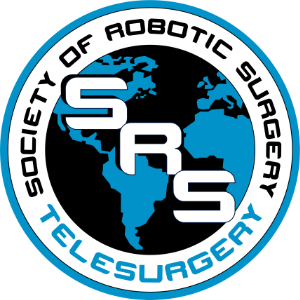Telesurgery Conference Orlando February 2024
Below are the reflections from the 1st Global Telesurgery Consensus Meeting which happened in Orlando, Florida From February 3-4 2024
Importance and Relevance of Consensus meeting:
The importance of telesurgery in this time and age has become obvious for many reasons. The reason to perform telesurgery is not because the technology allows it. The humanitarian, social and medical benefits are potentially enormous. The deficit in skilled surgeons in many rural or impoverished areas of the world is significant with many populous areas lacking skilled surgeons for critical procedures. Telesurgery can provide the opportunities necessary to allow remote surgeons to assist local, less skilled, or experienced surgeons when needed, or to fully perform the procedure remotely. This has significant potential in improving surgical quality and reduce complications, reaping enormous humanitarian benefits. The Society of Robotic Surgery (SRS) has identified this need and has gathered experts across various disciplines who are considered stakeholders in telesurgery, gaining their insight on the roadmap required to progress with implementing telesurgery.
What we found:
General themes and considerations that need to be addressed to create a framework to perform safe, efficient and excellent telesurgical procedures to move closer to the goal of achieving truly global healthcare equity include the following: technical, ethical, cybersecurity, regulatory and financial considerations. Addressing these themes through expert recommendations and interdisciplinary discussions is vital in laying the groundwork for adoption of telesurgery.
Goals moving forward:
General themes and considerations that need to be addressed to create a framework to perform safe, efficient and excellent telesurgical procedures to move closer to the goal of achieving truly global healthcare equity include the following: technical, ethical, cybersecurity, regulatory and financial considerations. Addressing these themes through expert recommendations and interdisciplinary discussions is vital in laying the groundwork for adoption of telesurgery.
- Improving network reliability across global hospital systems: Making hospitals equipped with 5G network connectivity with low latency, large bandwidth and increaser reliability is required before starting any telesurgical program.
- Increase intersociety and stakeholder dialogue: By forming a collaborative community of experts and stakeholders from various industries, professions, surgical societies and patient advocates, more open discussions as well as communication will result in a proper consensus that will remove many obstacles in implementing telesurgery as well as increase its acceptance amongst most surgical societies, healthcare systems and patients.
- Standardizing physician education, training, and credentialing: Providing a standardized, multidimensional training and education for physicians, focused on outcomes rather than quantitative assessment methods is necessary in helping surgeons achieve the level of proficiency and mastery required for telesurgery. A regulating body that provides a unified credentialing protocol should be set in place after consensus with all the stakeholders to ensure fair, safe and equitable access to healthcare is provided to the patients.
- Building a telesurgery specific government regulatory apparatus: By forming a collaborative community of experts and stakeholders from various industries, professions, surgical societies and patient advocates, a set of guidelines and framework can be created for the FDA and government to assess and approve for programs intending to adopt telesurgery and novel robotic platforms. This community would be seen as the advisory body for novel technologies and platforms pertaining to robotic and telesurgery.
- Highlight Cardiac & Vascular Emergency Procedures: Using urgent end use cases as the starting point for telesurgery seems like the most appropriate way of implementing it into the US healthcare system as well as paves the way for the adoption of elective surgical cases.
- Creating telesurgery-specific reimbursement coding : By examining procedure costs, readmission rates, complications, and benefits of expanded access, a standardized reimbursement coding should be put in place for both hospitals and surgeons. Addressing the jurisdictional, legal and regulatory issues at a federal level are key for nationwide adoption of standard coding.
- Delphi consensus on fundamentals of telesurgery: A Delphi Consensus was started during the meeting to be finalized in the weeks to follow that will aim to establish the fundamentals in establishing a telesurgery program.
